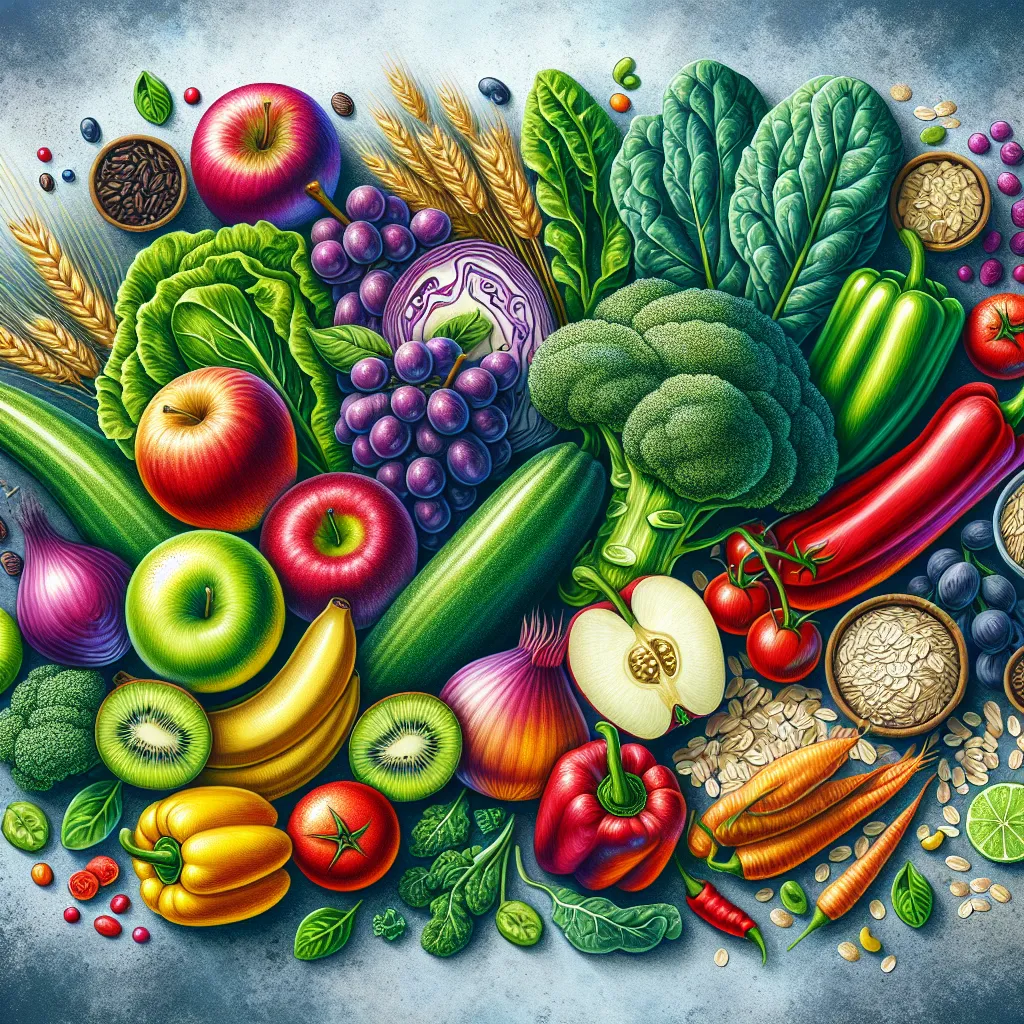Essential Nutrients for a Balanced Diet
When it comes to maintaining a healthy diet, ensuring that your body receives all the essential nutrients is crucial. Essential nutrients are substances that our bodies cannot produce in sufficient quantities, so they must be obtained through our diet. A balanced diet should include a variety of essential nutrients, including carbohydrates, protein, fats, vitamins, minerals, and water.
Carbohydrates are the primary source of energy for the body, and they can be found in foods such as fruits, vegetables, whole grains, and legumes. Proteins are necessary for the building and repair of tissues and can be found in foods like meat, fish, dairy, and plant-based sources like tofu and legumes. Healthy fats, such as those found in avocados, nuts, and olive oil, are essential for supporting cell growth and protecting organs.
Vitamins and minerals play a crucial role in various bodily functions. For example, vitamin C is important for the immune system and can be found in citrus fruits, while calcium, crucial for bone health, is abundant in dairy products. Additionally, it’s important to stay hydrated by consuming an adequate amount of water daily.
Incorporating a wide range of nutrient-dense foods into your diet will help ensure that you’re getting all the essential nutrients your body needs to function optimally. By focusing on consuming a variety of whole foods, you can easily meet your nutrient requirements and maintain a balanced and healthy diet.
Importance of Portion Control in Healthy Eating
Proper nutrition is essential for maintaining a healthy lifestyle. When it comes to healthy eating, portion control plays a crucial role in achieving and maintaining a balanced diet. The importance of portion control lies in its ability to help manage calorie intake, maintain a healthy weight, and prevent overeating. By being mindful of portion sizes, individuals can better regulate their energy levels and overall health.
Portion control is particularly important when it comes to high-calorie or high-fat foods. Consuming these in excessive amounts can lead to weight gain and an increased risk of health problems such as heart disease and diabetes. By practicing portion control, individuals can still enjoy their favorite treats while keeping their overall calorie intake in check.
One effective way to manage portion sizes is to use smaller plates and bowls. Research has shown that people tend to eat less when their food is served on smaller dishware, as it creates the perception of larger portions. Additionally, taking the time to savor and enjoy each bite can help prevent overeating, allowing the body to recognize feelings of fullness more effectively.
Incorporating a variety of nutrient-dense foods into each meal while being mindful of portion sizes can help individuals meet their nutritional needs without overindulging. Paying attention to hunger and satiety cues, as well as planning meals and snacks in advance, can contribute to a well-balanced diet and overall health.
By emphasizing the importance of portion control in healthy eating, individuals can enjoy a wide range of foods while promoting a positive relationship with food and maintaining a healthy weight.
Maximizing Nutritional Benefits through Cooking Techniques
When it comes to maintaining a healthy diet, the way food is prepared can have a significant impact on its nutritional benefits. By utilizing various cooking techniques, it is possible to maximize the nutritional value of the foods we consume. Here are some key tips for maximizing nutritional benefits through cooking:
- Steaming: Steaming vegetables helps retain their vitamins and minerals that can be lost during other cooking methods.
- Grilling: Grilling meats allows excess fat to drip off, resulting in leaner protein while preserving valuable nutrients.
- Stir-frying: This quick cooking method helps vegetables retain their crunchiness and nutrients due to the shorter cooking time.
- Baking or roasting: These methods can enhance the natural flavors of foods without the need for added fats, promoting healthier eating.
- Blanching: Briefly immersing vegetables in boiling water and then cooling them in ice water helps maintain their vibrant color and nutritional content.
- Simmering: Cooking foods in liquid at low heat can help preserve their nutritional value and create flavorful broths and soups.
- Using herbs and spices: Incorporating herbs and spices into cooking not only enhances flavor but also provides additional health benefits due to their antioxidant properties.
- Avoiding overcooking: Overcooking can lead to a loss of nutrients, so it’s important to cook foods until they are tender but still maintain their nutritional value.
- Preserving fruit and vegetable peels: Many nutrients are found in the peels of fruits and vegetables, so leaving them on when possible can boost their nutritional benefits.
- Pairing foods strategically: Combining certain foods can enhance their nutritional value, such as consuming iron-rich foods with vitamin C sources to increase iron absorption.
By being mindful of cooking techniques and their impact on nutritional content, individuals can make the most of their healthy food choices and optimize the benefits of a well-balanced diet.
Mindful Eating: Enhancing Nutrition Awareness
Mindful eating is a fundamental aspect of maintaining a healthy diet and enhancing nutrition awareness. It involves paying full attention to the experience of eating and drinking, both in the moment and in a non-judgmental way. Through the practice of mindful eating, individuals can develop a deeper connection with the food they consume and make more conscious choices. Here are top 10 nutrition tips that emphasize the importance of mindful eating in enhancing nutrition awareness:
- Be present at mealtime: Take the time to sit down and focus on your meal without distractions such as TV or mobile devices.
- Engage your senses: Pay attention to the colors, textures, flavors, and aromas of your food.
- Eat slowly: Chew your food thoroughly and savor each bite. This allows your body to register fullness and prevents overeating.
- Listen to your body: Tune in to your body’s hunger and fullness cues to guide your eating patterns.
- Appreciate your food: Cultivate gratitude for the nourishment and enjoyment that food provides.
- Practice portion control: Be mindful of serving sizes to avoid consuming more than your body needs.
- Choose nutrient-dense foods: Prioritize whole, unprocessed foods that are rich in essential nutrients.
- Stay hydrated: Drink plenty of water and limit sugary beverages to support overall well-being.
- Be mindful of emotional eating: Recognize the difference between physical hunger and eating in response to emotions.
- Seek balance, not perfection: Strive for a balanced and varied diet without strict rules or guilt surrounding food choices.
By incorporating these mindful eating practices into your daily routine, you can enhance your nutrition awareness and foster a healthier relationship with food.



